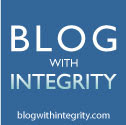For most of us, “Cataloging” really means “Copy Cataloging” where we search a database and find a bibliographic record that matches the item we have in our hand. Except for one-of-a-kind things like manuscripts and works of art, someone has likely already cataloged the items in our collections and we only need to verify the accuracy of the bib record and import it into our library’s catalog.
That’s good. It means we spend far less time cataloging than our colleagues did 30 or 20 or even 10 years ago. It means we can train paraprofessionals to search for matching records which translates to processing items faster and getting them to our patrons in record time.
But where do all of those cataloging records that we’re all sharing come from?
A major contributor to our library catalogs is the Library of Congress via their Acquisitions and Bibliographic Access Directorate. The divisions within Bibliographic Access are responsible for the descriptive cataloging of books, music scores, sound recordings, microforms, and computer files. In addition, the Cataloging in Publication division prepares bibliographic records in advance of publication for those books most likely to be widely acquired by American libraries. The results of LC’s efforts are available to all libraries in the Library of Congress Online Catalog.
However, not all of the bibliographic records we find come directly from the Library of Congress. The Program for Cooperative Cataloging (PCC) is an international cooperative program coordinated jointly by the Library of Congress & PCC participants around the world. Members contribute not only cataloging but authority records for names and subjects. The goal of PCC is to provide useful, timely, and cost-effective cataloging that can be shared by libraries.
In addition to the more formal PCC, members of OCLC or Online Computer Library Center also create and share bibliographic records via WorldCat. Once restricted to members only, WorldCat is now searchable to anyone with an Internet connection, although a membership is required to export bib records directly into a local catalog. A specific level of membership is needed to contribute records. Tens of thousands of libraries are OCLC members and their catalogers create new bibliographic records if they cannot find one that matches the item they are searching.
As a result of all this cooperation, libraries have readily available cataloging for their everyday, popular materials – as well as more obscure items – saving much time and energy. Finding bib records in a national database and importing them into a local catalog speeds up the entire cataloging process and gets items into patrons’ hands sooner. And isn’t that what it’s all about?
Wednesday, November 21, 2007
Subscribe to:
Posts (Atom)

